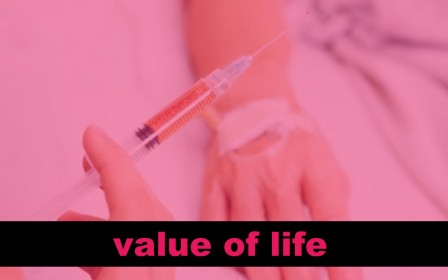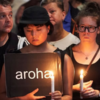Subject: Health Select Committee Inquiry Submission
Email: health@parliament.govt.nz
Date: Tuesday 26 January 2016
On the inquiry into “public attitudes towards the introduction of legislation which would permit medically-assisted dying in the event of a terminal illness or an irreversible condition which makes life unbearable.”
From: Glyn Carpenter
National Director
New Zealand Christian Network
297a Church Street, Auckland
Ph: (09) 525 0949 and (022) 184 7466
Submission summary
I am writing on behalf of New Zealand Christian Network to ask that the committee recommend that euthanasia not be legalised in New Zealand.
I do wish to speak to the committee in person.
Submission
- Introduction
- New Zealand Christian Network is a broad-spectrum network of churches and Christian leaders, with a Board of Reference that includes leaders from all the main denominations. We present positions on issues that reflect the views of the majority of Christians in Aotearoa New Zealand.
- Christians currently represent the largest faith group in Aotearoa New Zealand according to the national census with roughly half of the population indicating that they are Christian.
- Christians and Christian faith have played, and continue to play, an important role in this country.
- In 2014 we marked the bicentenary of the arrival of the Christian gospel in Aotearoa New Zealand which was an essential foundation for the Treaty of Waitangi and the bicultural partnership in our nation.
- Christian social services are a vital component of the social fabric in this country.
- Christian churches nurture spiritual faith and character based on the life and example of Jesus Christ who taught people to ‘love their neighbour’ and live in service of God and others. (According to Massey University research over 20% of the population attends church on a regular basis).
- This submission is based on a desire to achieve an outcome which is good for everyone in New Zealand.
- We have good connections with members of the Care Alliance and Euthanasia-Free NZ. Both of these groups are making submissions and we do not intend here to repeat here in detail the points they will be making. But we do want to register our general support for their submissions.
- We also have connections into the medical profession. We are aware of their general opposition to the proposal and we support their position.
- For and Against
- The main arguments for and against permitting ‘medically-assisted dying’ are presented in some detail on the Care Alliance, Euthanasia-Free NZ, and Voluntary Euthanasia Society websites, and in their public statements.
- Summary of the arguments Against (from the Care Alliance website):
- Legal safeguards cannot protect the vulnerable from euthanasia abuses
- Euthanasia and assisted-suicide are the ultimate tools for elder abuse
- It sends a hypocritical message about suicide
- The killing always increases
- Diagnosis and prognosis can be mistaken
- An easy death is not guaranteed
- It compromises the hospice movement
- Trust in doctors and nurses falls
- Arguments For (from the Voluntary Euthanasia Society website)
- The VES website has a document which contains responses to each of the arguments listed above.
- In addition, while there is no comparable document presenting a separate list of arguments in favour of assisted suicide, it seems that the main argument is individual autonomy or freedom of choice.
- Christians and Life
- The general Christian view is that life is a gift from God. Life is sacred. It is God’s to give and take.
- This belief over the centuries has contributed to the high regard that people generally have for life today
- This ‘life ethic’ influences areas ranging from our health system and hospice movement, through to human rights and social justice. Everyone benefits from these developments whether they are Christians or not.
- Because life is a gift from God, it is therefore not for individuals to end it (in the case of suicide), or for others to end it (in the case of assisted suicide).
- Christians and Autonomy
- Christians also have high regard for an individual’s right to choose, which is the main argument from proponents of a law change. But this right or freedom does not exist in isolation, nor is it absolute.
- Societies have to balance the rights of the individual and the rights of the community. We recognise that the state should only limit individual rights where they interfere with the health or safety of the community. There are limitations with this view though:
- It is often difficult to measure “health or safety” (the widely recognised problem with John Stuart Mill’s utilitarian philosophy)
- The concept of ‘unbearable’ is also problematic (as in ‘terminal illness or irreversible condition that makes life unbearable’). . How is ‘unbearable’ determined? If it boils down to the view of the individual, the proposition will end up being reduced to “if an individual wants assisted suicide they can have it”. . With many options available to make situations ‘bearable’, isn’t society better off if we focus on those, rather than pushing for an individual right which will profoundly change the way society views life?
- Clearly, something other than rights and law is needed to make a good and caring society
- Caricatures of the Christian position . The Committee should be alert to caricatures of the Christian position (e.g. the document “Christians and Religious Perspectives” on the Voluntary Euthanasia Society website http://www.ves.org.nz/christian-and-religious-perspectives). . A few examples should suffice (emphasis throughout added by this author):
- The document referred to begins with the phrase “Some Christians and Muslims argue that God gives us our life and hence we have no right to authorise anyone to hasten our death”. Misleading (this is mainstream teaching in both religions)
- “In general, Christians believe that God has given us free will … but when we wish to hasten our dying to limit our suffering, some tell us we are not allowed to do that”. . Obfuscation (hastening dying is not the only way to limit suffering) and misleading (not hastening dying is mainstream teaching)
- “God would prefer you to suffer rather than get help to end your life. God would prefer you to lose all your dignity rather than being able to say farewell to your loved ones while still conscious”. . False alternative (end life or suffer) and gross misrepresentation of God (God does not prefer people lose their dignity, and God does not present the false alternative)
- “… it is difficult to find a place where God or biblical writers say that futile suffering and pain is to be desired as one approaches death …” . Straw man argument – this is not biblical, neither is it mainstream teaching. . . The general theme is that God is harsh, and doesn’t mind, or perhaps even wants people to suffer. This is not true, and with access to palliative care, is simply irrelevant.
- Balancing the Gifts of Life and Freedom, of the Individual and Society
- This is the issue that is at the heart of this debate. Christian belief is not only that life is a gift from God, but that this belief has directly contributed to the society we all benefit from whether or not we hold to Christian belief.
- This belief obviously inclines us to see the merits in the detailed arguments listed above against permitting assisted suicide over and above the arguments for.
- But we should also not minimise the significance of the fundamental shift in society when we move from total ‘ethic of life’ (creating, preserving, healing, caring), to one where ‘death’ (intentionally ending life) is part of the culture.
- As the Church is significantly involved in community and social services, we are particularly concerned about the arguments involving the vulnerable and the elderly. . Elder abuse is already a significant issue in New Zealand, and it can be very hard to detect. It is easy to imagine a range of scenarios where elderly people will conceal abuse or emotional pressure, or perhaps not even be aware of it themselves. If assisted suicide is legalised, it is hard to believe that any regime will be able to fully safeguard against some people being pressured to end their own lives.
- Conclusion. We recognise that many people in New Zealand, in Parliament, and probably in the Select Committee, do not consider themselves to be Christians, and that the content of this submission, particularly the points directly connected to Christian faith or teaching, may be difficult to process. . We respectfully request that the Select Committee not reject these without considering the extent and role of Christian faith in New Zealand, and the fact that if the points in this submission are correct, Parliament’s role should be to preserve the ‘life ethic’ which is foundational in our society.
We recognise that many people in New Zealand, in Parliament, and probably in the Select Committee, do not consider themselves to be Christians, and that the content of this submission, particularly the points directly connected to Christian faith or teaching, may be difficult to process.
We respectfully request that the Select Committee not reject these without considering the extent and role of Christian faith in New Zealand, and the fact that if the points in this submission are correct, Parliament’s role should be to preserve the ‘life ethic’ which is foundational in our society.









0 Comments